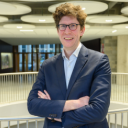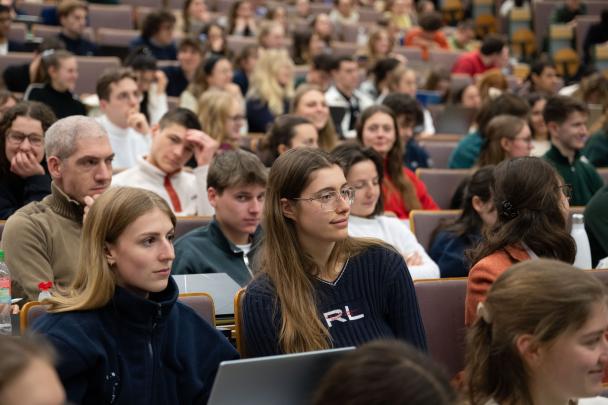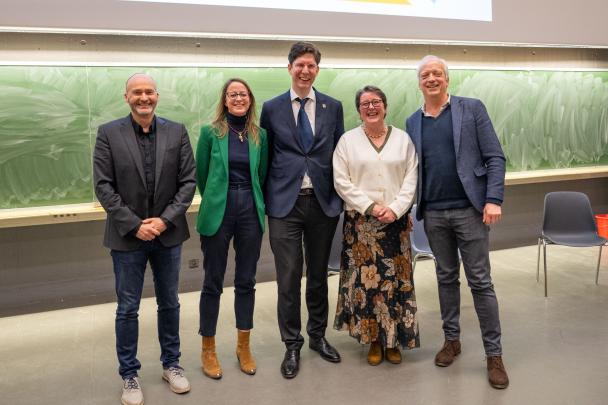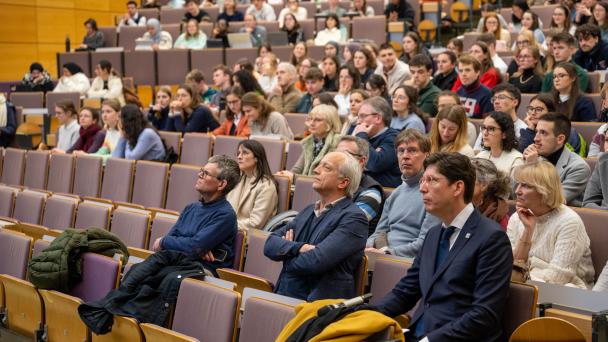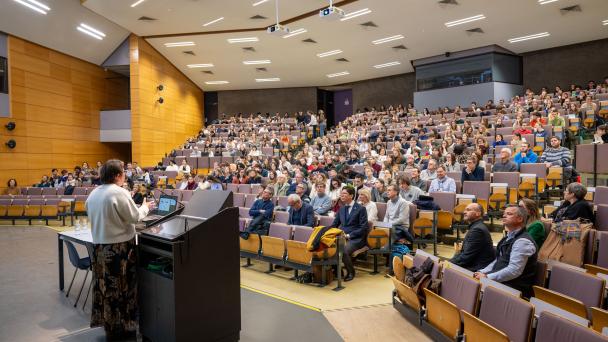Developed in line with the UN's Sustainable Development Goals (SDGs), the "One Health" EU illustrates UNamur's commitment to promoting active, interdisciplinary education. As Annick Castiaux, Rector of the University, pointed out, "Health must be considered as a sustainable development issue. The crucial question to ask is: What must become of health training to meet these challenges?"
This new unit also aims to reinforce the university's three fundamental missions: teaching, research and service to society. Indeed, the "One Health" EU is part of the drive to provide better training to innovate, by promoting interdisciplinarity and partnerships, which are essential if we are to have a real impact on today's public health challenges. The Rector also supports excellence in health research at UNamur, via the Narilis Research Institute, which does its utmost to conduct high-quality basic research via innovative, collaborative and multidisciplinary health research. Finally, the "One Health" philosophy also intends to consider health as a common good and thus act in the service of society via sustainable, sustainable policies.
At the inauguration, Yves Coppieters, Minister of Health, Environment, Solidarity, Social Economy, Equal Opportunities and Women's Rights, emphasized the importance of a global, connected approach. "We need to think of healthcare as an orchestra with different instruments that ultimately become one. The Covid-19 health crisis reminded us that everything interacts, everything is connected. Today, however, we lack a global vision. We need to operationalize it, and I thank the University of Namur for having succeeded in setting up such a teaching unit ", shares the Minister.
Yves Coppieters also stressed the need for concrete action to rethink prevention. "To prevent better, we mustn't believe in simply changing individual behavior. Rather, we need to transform the environments in which they evolve and thus truly promote health." The Minister also spoke of the major challenges we face, and for which he is committed to implementing concrete initiatives: "We have been confronted with a good number of cases that have generated large-scale consequences. Take the problem of antibiotic resistance, which poses risks to human and animal health. Or PFAS, which also have major consequences for ecosystems. Hence, once again, the interest in acting for a single health," explains Yves Coppieters.
From this inauguration, we will remember that to make "One Health" a reality, it was necessary to integrate three fundamental principles:
- Interdisciplinarity: bringing together experts from different disciplines for a comprehensive approach.
- Operationalization: translating concepts into concrete action.
- A systemic and global vision: not limiting health to a restricted framework, but embedding it in a global dynamic.

